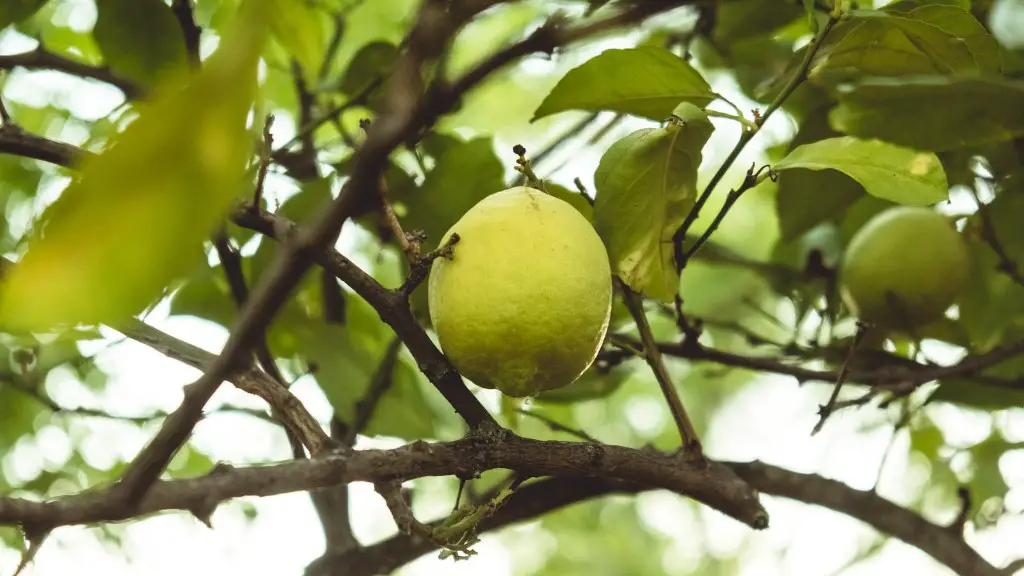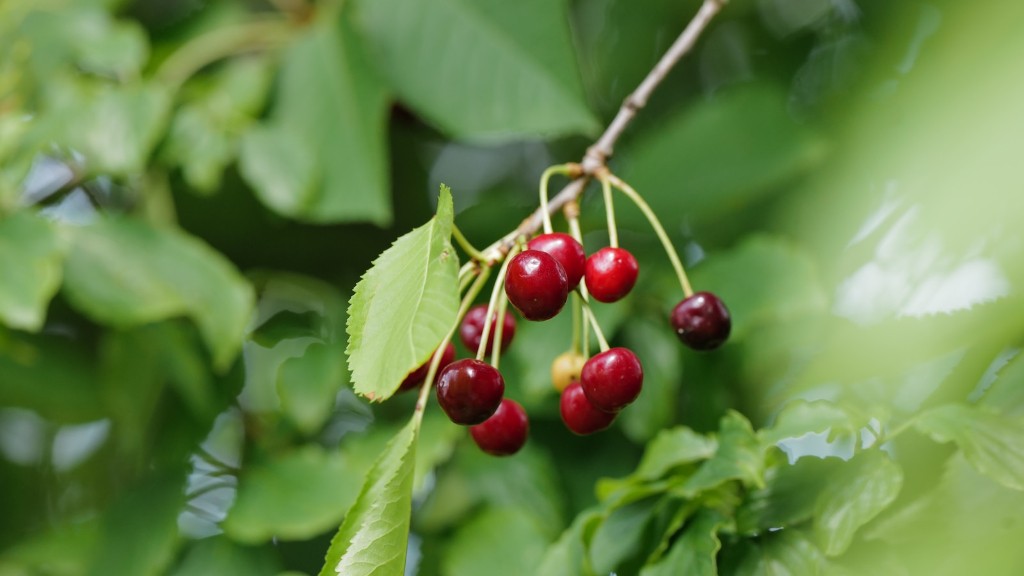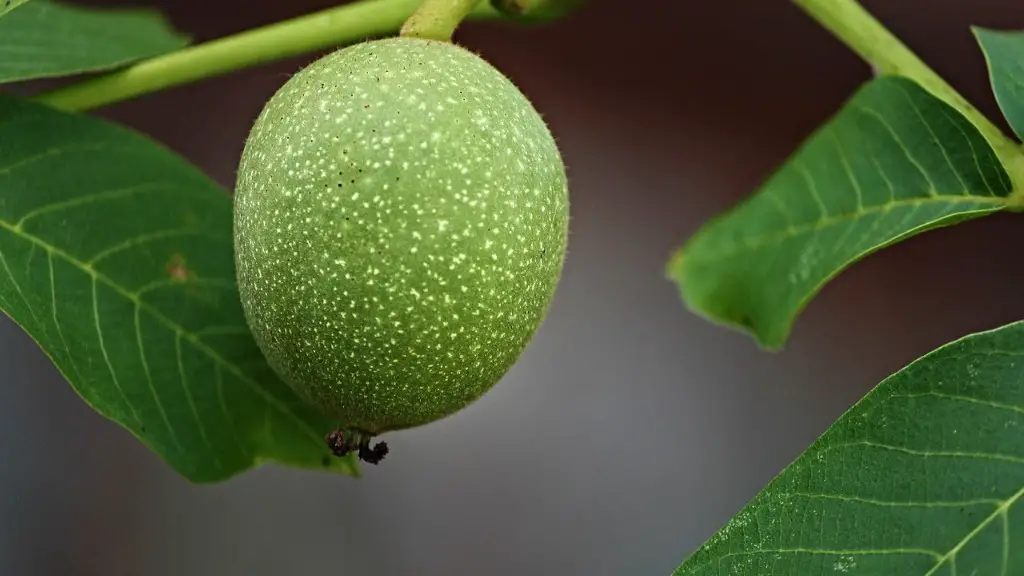Anyone living in the UK can enjoy the flavor and health benefits of homegrown lemons by growing a lemon tree. Lemon trees are easy to grow indoors, in containers, and sometimes outdoors. Here is a step-by-step guide to growing your own lemon tree in the UK.
First, choose a healthy lemon tree. For any kind of successful indoor garden, it is important to start with a healthy tree. Look for a tree with dark green leaves, a fragrant smell, and a thick trunk. If the tree looks weak or has signs of disease, avoid buying it.
Next, decide where to place the tree. Lemon trees need lots of sunlight to thrive and grow, so it is best to place them in a spot that receives at least 8 hours of direct sunlight a day. For many indoor gardens, this means placing the tree near a window that receives plenty of sunlight throughout the day.
Then, prepare the soil. Lemon trees need a light and well-draining soil to thrive. If you are planting the tree in a pot or container, you can use a pre-packaged potting soil mix. Be sure to mix in some sand or perlite to improve drainage. If you are planting the tree in the ground, you can use a mix of topsoil, sand, and compost.
After that, water the tree regularly. For indoor lemon trees, it is important to water them once or twice a week. Depending on how much humidity is in the air, you may need to water more often. For outdoor trees, water them every other day. Always check the soil for moisture before watering. If it is still damp, you do not need to water it.
Additionally, fertilize the tree every few weeks. A balanced fertilizer is the best choice for lemon trees. Follow the directions on the packaging for the correct amount and frequency of application. Fertilizing your tree during the growing season is especially important, as it provides the tree with the nutrients it needs to grow and produce fruit.
Finally, prune the tree to keep it healthy and encourage it to produce fruit. Removing dead or damaged branches and stems promotes healthy growth and encourages new fruit production. Also, be sure to remove any flowers or fruit that develops before the tree is completely mature, as this will help the tree focus its energy on growing and maturing rather than producing fruit.
Taking Care of Lemon Trees UK
Taking care of a lemon tree in the UK can be both rewarding and a bit of a challenge due to the climate. Keeping the tree healthy and productive requires regular maintenance and vigilance. Here are some tips to help with taking care of a lemon tree in the UK.
First, watch for pests and disease. Common pests that can affect lemon trees in the UK include aphids, mealybugs, and scale. If you notice any signs of pests, try to remove them by hand. If the infestation is severe, you may need to use an insecticidal soap or another type of pesticide. Likewise, watch for signs of disease such as leaf spot or canker. If you notice any signs of disease, bring the tree to a professional for diagnosis and treatment.
Second, prune regularly. Pruning your lemon tree is important for keeping it healthy and productive. Removing dead or damaged branches and thinning out dense areas of the canopy encourages air flow and sun exposure, which helps keep the tree healthy and prevents disease. Also, pruning helps maintain the overall size of the tree, making it easier to manage.
Third, monitor the soil moisture levels. Lemon trees need well-draining soil and regular watering, but it is important to avoid overwatering. To prevent this, check the soil before watering and only water if the top 2 inches are dry. For citrus trees in pots, the soil should be allowed to dry out between waterings.
Fourth, feed when necessary. Feeding your lemon tree a balanced fertilizer on a regular basis ensures that it is getting the nutrients it needs to stay healthy and produce fruit. However, it is important to avoid over-fertilizing, as this can lead to nutrient burn or other problems. Follow the instructions on the fertilizer packaging for the proper amount and frequency of application.
Lastly, provide protection during frosty weather. If your lemon tree is ever exposed to temperatures that drop to 4°C or lower, you should cover it with a blanket or another insulating material. This will help protect the tree from the cold and ensure that it survives and continues to thrive.
Growing Lemon Trees Outdoors in the UK
In certain parts of the UK, lemon trees can be grown in the ground outdoors. While lemon trees generally prefer to grow indoors, some varieties are hardy enough to survive in the UK climate. Here are some things to keep in mind when growing lemon trees outdoors in the UK.
First, pick the right variety. The best choice for lemon trees in the UK is the Citrus limon ‘Lisbon’ variety, as it is hardy enough to withstand the colder temperatures in the UK. This varietal can survive temperatures down to -12°C.
Second, choose the right spot. When selecting a spot to plant your lemon tree, look for an area that is sunny and has well-draining soil. Avoid planting in shady areas, as the tree needs direct sunlight for at least 8 hours a day to thrive. Soil that is too wet will cause the roots to rot, so avoid areas with clay-based soil or areas that are prone to flooding.
Third, train the tree to grow low. Lemon trees have a tendency to develop a tall, lanky shape instead of a compact one. To prevent this, start pruning when the tree is young to promote a low, spreading shape. This will not only make it easier to manage, but it will also allow more of the tree to receive sunlight, which will help with fruit production.
Fourth, keep an eye out for pests. As with indoor lemon trees, outdoor lemon trees are susceptible to pests and diseases. Pay close attention to the leaves and branches for any signs of pests, such as aphids or scale, and be sure to promptly remove any that you find. If the infestation is severe, you may need to use an insecticidal soap or other pesticide.
Fifth, protect the tree in winter. When temperatures drop, the tree will need extra protection. Cover the tree with a tarp or blanket when there is frost to keep the temperature from getting too cold. If temperatures drop below 4°C, you may need to bring the tree indoors until the weather warms up.
Harvesting and Storing Lemons UK
Once your lemon tree starts producing fruit, you will need to know how to harvest and store it. Lemons can be a bit tricky to harvest correctly, as picking them too early or too late can affect the taste and texture of the fruit. Here are some tips to help with harvesting and storing your lemons in the UK climate.
First, wait until the fruit is ready. The best way to determine if a lemon is ripe is to check its color. Lemons should be a deep yellow color when they are ready to harvest, and they should feel slightly soft and slightly heavy for their size. Don’t be tempted to pick the lemons early, as this will affect their taste and texture.
Second, use clean scissors or pruners when harvesting. To ensure that the lemons stay fresh for as long as possible, use a pair of clean and sharp scissors or pruners to cut the fruit from the tree. Avoid pulling or twisting the fruit, as this can damage the rind and cause the lemon to spoil more quickly.
Third, keep them cool. After harvesting, store your lemons at a temperature of 4-7°C. Avoid leaving them in direct sunlight or in temperatures over 10°C, as this can cause the lemons to spoil quickly. You can store lemons in the fridge for up to two weeks or in the freezer for up to three months.
Fourth, juice or zest them. To prolong the shelf life of your lemons, consider juicing or zesting them before storing. This will allow you to preserve the lemon juice or zest, which can be used in recipes or to make homemade lemonade or lemon-based products.
Lastly, wrap in paper or plastic. If you want to store lemons for a longer period of time, you can wrap them in paper or plastic to help preserve their freshness. Wrapping them in paper will still allow them to breathe and will help them keep longer than if they are not wrapped. Wrapping them in plastic will help keep the rind from drying out, but the lemons may spoil more quickly.
Using Lemons UK
Lemons are a versatile fruit that can be used in a variety of recipes, drinks, and other products. Here are some of the ways lemons are commonly used in the UK.
First, as a garnish. Lemons are often used as a garnish to give dishes a pop of flavor and color. From salads to seafood dishes to desserts, lemons add a pleasant tartness and brightness to any meal.
Second, to make marmalades and curds. Lemons are one of the most popular ingredients for making marmalades and curds in the UK. Both can be made easily at home using sugar, butter, and lots of freshly-squeezed lemon juice.
Third, to make drinks. Aside from lemonade, lemons are often used to make homemade cocktails and other drinks in the UK. Popular recipes include whiskey sours and gin and tonics.
Fourth, as a natural cleaning agent. Lemons are great for cleaning surfaces around the home, as their acidic juice can help remove dirt and grime. It can also be used to naturally whiten clothes and remove stains on surfaces such as counters and sinks.
And fifth, for medicinal purposes. Lemons are rich in vitamin C and other antioxidants, making them a popular health tonic. They can be drunk with hot water and honey to treat colds and sore throats, or simply consumed to boost overall health.



